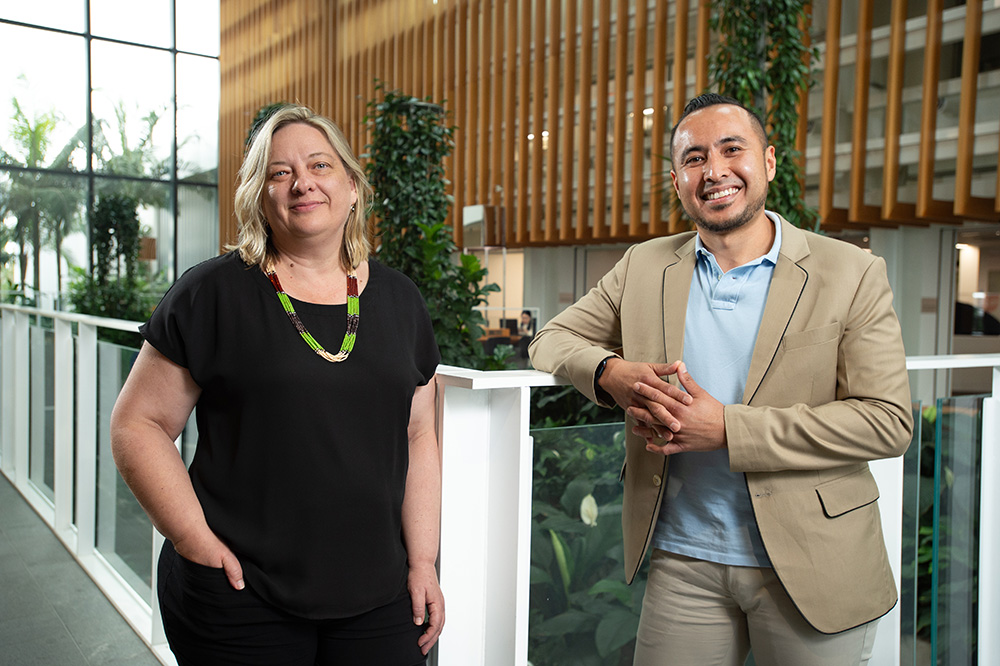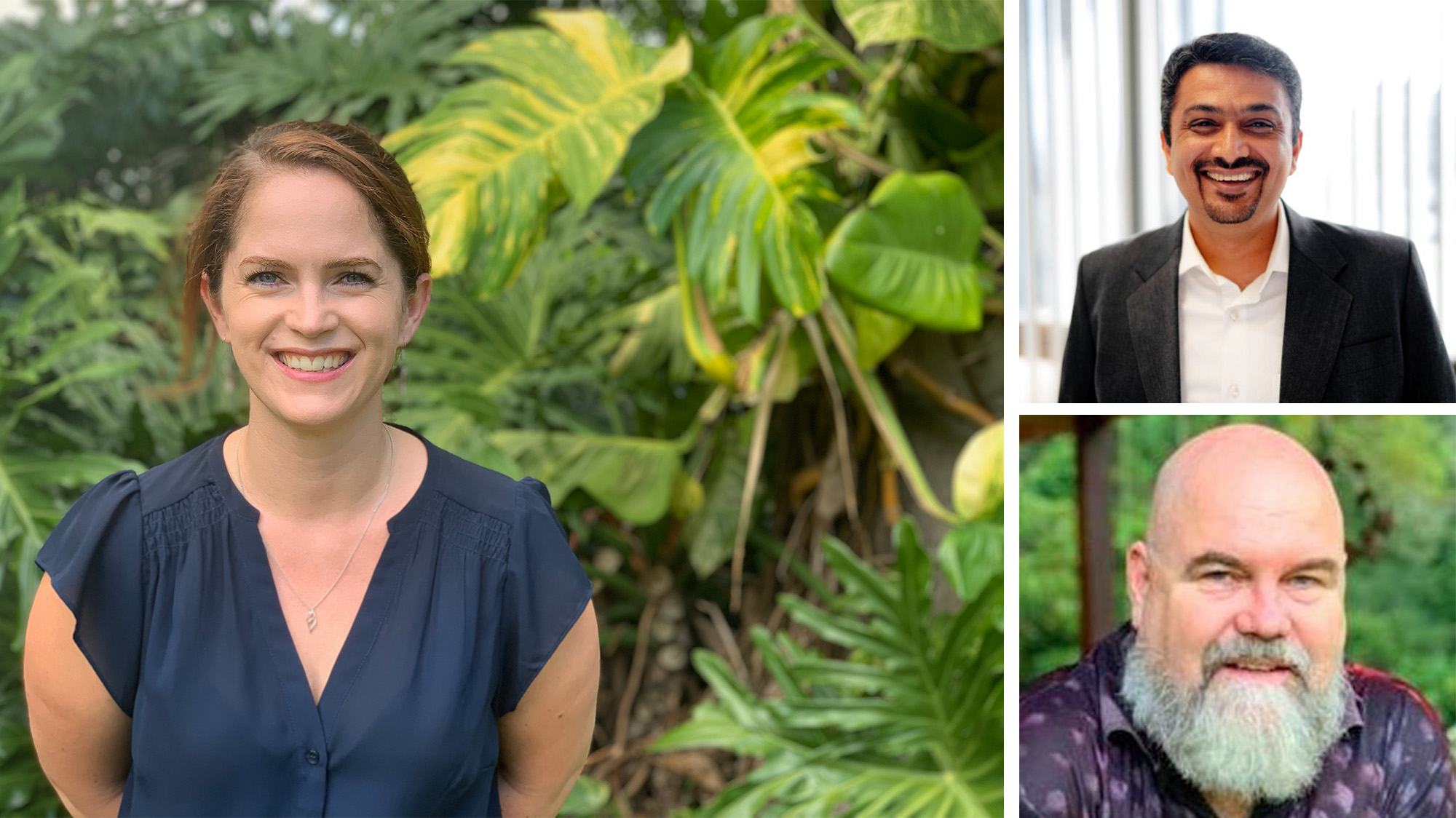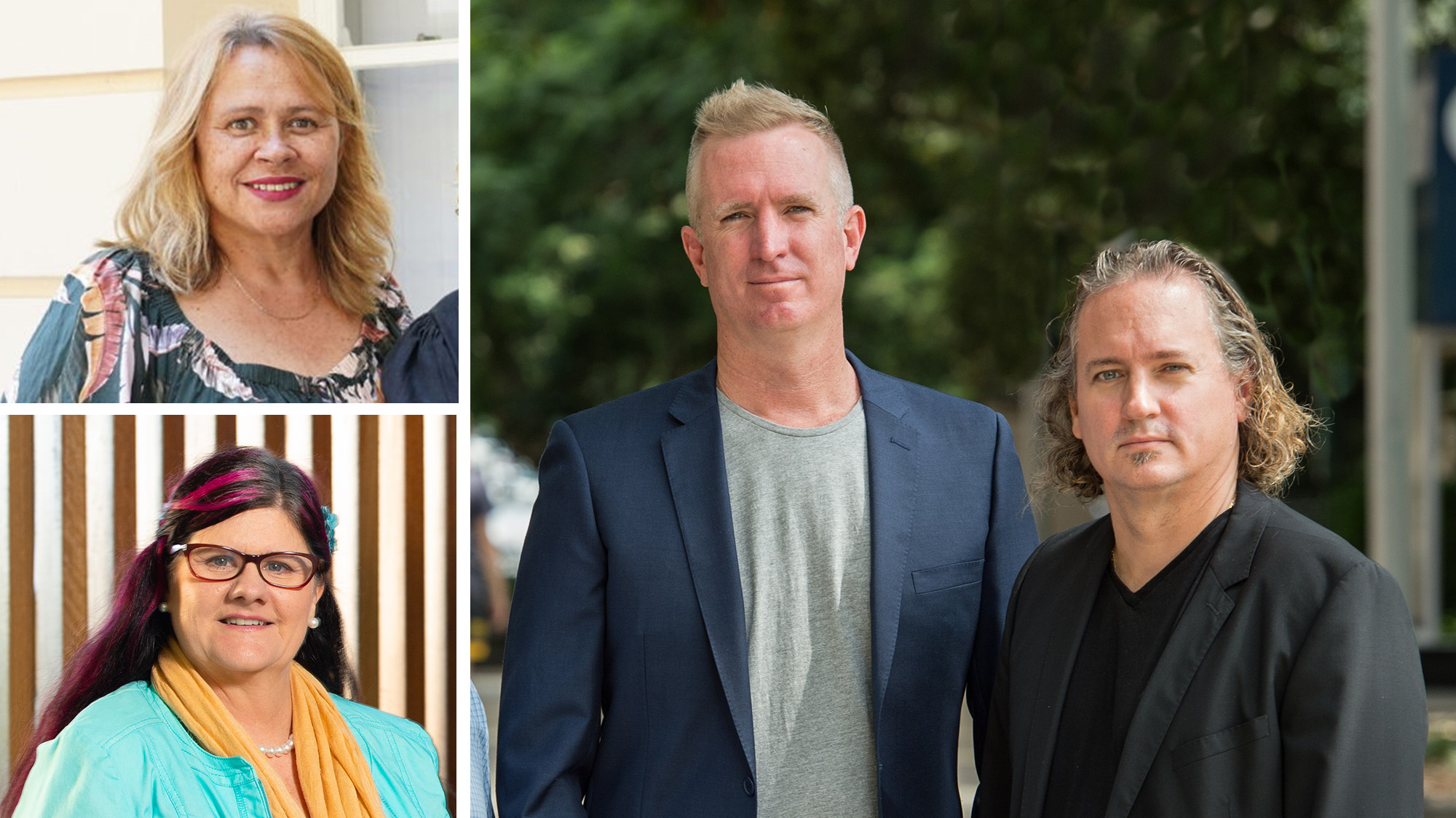QUT has been awarded $4,473,164.40 in National Health and Medical Research Council (NHMRC) Ideas Grants for three projects.
Chief investigator Dr Adi Idris, from the QUT School of Biomedical Sciences, will lead a $1,550,922 project titled, Developing a universal direct acting antiviral nasal spray against multiple respiratory viruses.
The project aims to develop a self-administered, universal, antiviral nasal spray that treats the most common respiratory viruses, including COVID 19, human metapneumovirus, influenza A and respiratory syncytial virus at the point of entry to the body.
"We propose a novel molecular therapy targeted at inhibiting the replication of multiple viruses using gene-silencing technology in a single nasal spray formulation," Dr Idris said.

"We will develop antiviral gene-targeting molecules called small-interfering RNAs that will not only ensure adaptability against current circulating viruses but also their emerging variants.
"This antiviral therapy could not only reduce respiratory virus disease burden, but also effectively prevent aerosol spread of multiple respiratory viruses.
"Our modular therapeutic platform could be a paradigm shift in the management of pandemics, but also in preparedness for future pandemics."
Chief investigators on this project are Dr Idris; Professor Nigel McMillan, Griffith University; Dr Harendra Parekh, The University of Queensland; Professor Jorgen Kjems, Aarhus Universitet, Denmark.
Associate investigators are Professor Kirsten Spann, QUT; Dr Yaman Tayyar, Professor Kevin Morris, Griffith University; Karnaker Reddy Tupally, Preeti Pandey, Dr Rink-Jan Lohman, The University of Queensland; Professor Patrick Reading, WHO Collaborating Centre for Reference and Research on Influenza.
Associate Professor Shivashankar Nagaraj from QUT School of Biomedical Sciences has been awarded a $1,771,845.60 grant for the project, Characterising the pharmacogenomic landscape of chronic disease in Australia's First Peoples.
The four-year project will use a community-based and guided approach to identify the genetic factors that predict drug response in Indigenous Australians to address their disproportionate burden of chronic disease and underrepresentation in genetic and clinical health research.
"This research will focus on eight drugs commonly used to treat the chronic diseases that contribute to almost 80 per cent of the mortality gap between Indigenous and other Australians by building a pharmacogenomics (PGx) evidence base through the integration of long-read sequencing and PGx," Professor Nagaraj said.

Inset top: Associate Professor Shivashankar Nagaraj,
Associate Professor Rodney Lea.
"This research will ultimately provide new insight into the genetic basis of drug efficacy and safety in Indigenous Australians leading to a customised genetic test that will serve as a personalised roadmap for optimal drug selection to streamline Indigenous patient care and improve health outcomes."
Chief investigators on this project are Professor Nagaraj, Associate Professor Rodney Lea, and Dr Victoria Coyne, QUT; Rica Lacey, Queensland Health; Tamika Campbell and Reece Griffin, Carbal Medical Services, Toowoomba; Professor Henk Jan Guchelaar and Professor Jesse Swen, Leiden University Medical Center, The Netherlands; Dr Genevieve Gabb, Royal Adelaide Hospital.
Associate investigators are Professor Alex Brown, Australian National University; Professor Maree Toombs, University of Sydney; Professor Steve Kisely, The University of Queensland; Prasad Challa, Logan Hospital.
A project titled Saving lives in rural and remote Australia: tackling rheumatic heart disease-related pathologies using behavioural economics interventions for early prevention, diagnosis, and managing disease progress has been awarded $1,150,396.80.
The incidence of acute rheumatic fever (RHD) and prevalence of RHD among Indigenous Australians are 120 and 61 times higher respectively than non-Indigenous Australians.
Purely expert-led biomedical interventions have not been enough to reduce RHD morbidity and mortality rates with low awareness of the disease, poor medication compliance and lack of and culturally safe support are some explanations for these differences in RHD incidence and prevalence.
To address these challenges, QUT chief investigators Professor Benno Torgler, Dr Stephen Whyte and Adjunct Professor Uwe Dulleck from QUT School of Economics and Finance and Jody Currie, Professor of Indigenous Practice, are spearheading this grant. The team will develop behavioural economics-informed interventions to address behavioural barriers to engage with clinical and non-clinical staff.
A multidisciplinary team from cardiology, behavioural economics, and public health will design and evaluate end-user-led tailored, co-designed, and trauma-informed care interventions using the EAST (easy, attractive, social, and timely) framework to enhance health outcomes in First Nations communities in Far North Queensland.

Dr Stephen Whyte, Professor Benno Torgler.
Ultimately this project will develop and implement sustainable and transferable evidence-based practices while building significant capabilities among researchers, Gurriny Yealamucka Health Service and First Nations communities.
The key contributor to the development of this grant application is Thilini Nisansala, currently a PhD student at QUT. Upon completion of her doctoral studies, she will assume the role of postdoctoral student for this project.
Other chief investigators are Anita Lee Hong and Dr James Doran, Gurriny Yealamucka Health Service Aboriginal Corporation; Associate Professor William Wang, The University of Queensland; Professor Maria Raciti, University of Sunshine Coast.
Associate investigators are Professor Rebekah Russell-Bennett, QUT; Professor Gerald Holtmann and Associate Professor Isuru Ranasinghe, The University of Queensland.






